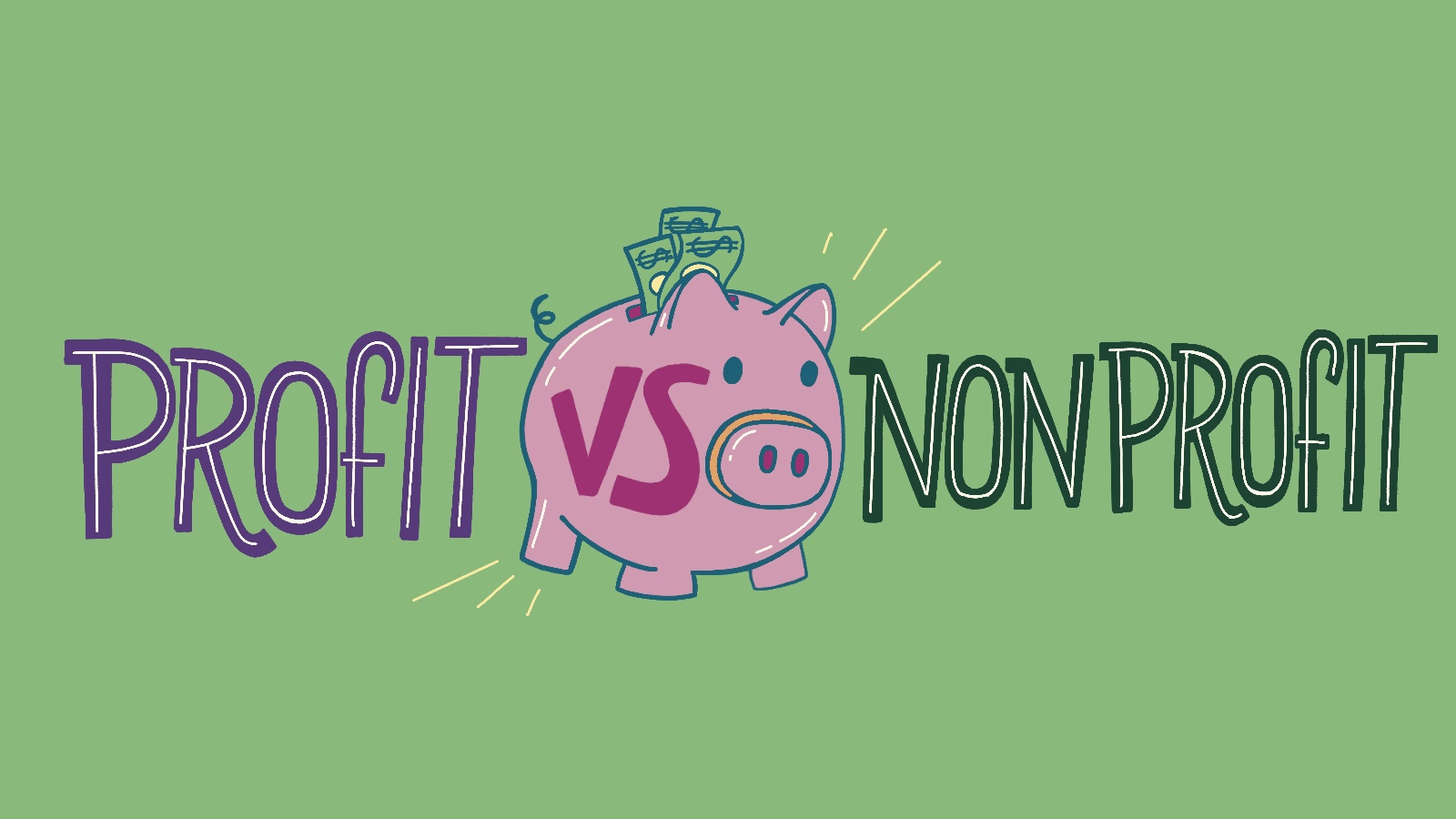One of the first (and biggest) decisions you’ll need to make when establishing a new Microschool is whether it should be for-profit or nonprofit. While your profit status won’t have much of an effect on your day-to-day school operations, it does make a big difference for tax purposes, funding opportunities, and other major issues. There are pros and cons for each, depending on your situation, though we tend to think nonprofits are a better choice for Microschools overall. Here’s why, along with some tips on how to make the right choice for you and your school.
Disclaimer: This information is not intended to replace legal advice from a lawyer or tax advisor. Always consult a professional in these fields for the most up-to-date advice and information in your jurisdiction.
What is a nonprofit organization?
As the name implies, a nonprofit organization is one that doesn’t provide a profit to the owner or shareholders. All of the money raised and earned by the nonprofit must be used to operate the organization in furtherance of its mission. If there’s money left over at the end of the fiscal year above and beyond your operating costs, it must be kept in the nonprofit’s name and used for the organization in some way.
In the US, nonprofit organizations (sometimes called “charitable organizations”) are also known as 501(c)(3) organizations. This refers to the IRS tax code that outlines how nonprofit organizations work.
What organization types can qualify for nonprofit status in the US?
The IRS says, “Organizations organized and operated exclusively for religious, charitable, scientific, testing for public safety, literary, educational, or other specified purposes and that meet certain other requirements are tax exempt under Internal Revenue Code Section 501(c)(3).” Schools generally fall under that description. Learn much more about 501(c)(3) organizations in the US here.
How do I make a living from a nonprofit organization if I can’t make a profit?
If you’re considering running a Microschool as your career, you might wonder how you’ll make a living if you don’t earn a profit. Not to worry! Nonprofit organizations can pay people (including directors, teachers, and other employees) a salary. If you set up your Microschool as a nonprofit, you’ll include your personal salary as part of the budget that falls under the costs of running the school. (Note that anyone receiving payment in exchange for work from a nonprofit is still required to file personal taxes for that income.)
What’s required to become a nonprofit organization?
In the US, you must file official paperwork to register your organization with your state and the federal government. You’ll need to have a board of directors of at least three people (more on that below), choose a legal structure, obtain an Employer Identification Number, file for tax-exempt status, pay the application fee, and more. There’s a lot to do up-front, and most people choose to work with a lawyer who specializes in 501(c)(3) organizations to ensure they get it all right.
What are the benefits of being a nonprofit Microschool?
Although there’s a lot to do in the beginning, once your nonprofit Microschool is set up, you’ll reap a many benefits. Some of the biggest ones include:
Tax-Exempt Status
This one is major, and one of the best reasons for making your Microschool nonprofit. As a tax-exempt organization, you won’t need to pay taxes on your school’s income. Purchases you make for your school can be exempt from sales tax. Depending on your location, you may also be exempt from federal, state, local, property, and other taxes as well. (Be sure to consult a tax attorney for more information.)
More Potential Funding Opportunities
Donations made to a nonprofit organization are also usually tax-exempt. That means people or businesses who donate to you don’t need to pay taxes on those funds when they file their own tax returns at the end of the year. That makes many people much more willing to donate, especially in large amounts.
In fact, many corporations and other organizations won’t make donations to for-profit organizations for just that reason. The same goes for most education grants – they’re often only available to nonprofits. That means if your Microschool is a nonprofit, you’re likely to find it much easier to obtain funding from these sources.
Credibility
Don’t underestimate the importance of credibility: people tend to trust nonprofits more than for-profit organizations. Other organizations are often more willing to work with nonprofits without asking for payment. That can make it easier to do lots of things: find a location for your school, create community partnerships, arrange for donations of supplies or materials, and more.
Families tend to prefer nonprofit schools too. It’s entirely a matter of perception, of course; some people look at for-profit schools with a bit of suspicion. This doesn’t necessarily reflect reality, as a for-profit school can be perfectly legitimate. But in terms of reputation, nonprofit Microschools usually fare better.
Board of Directors
This can be a benefit or a drawback, depending on your own feelings and situation. But having a board means you’re not doing everything on your own. You have others to talk over decisions with, ask for advice, and bring into the process of planning and running your school. It’s up to you to decide who sits on your board, so you can choose those who are like-minded and will support your goals and efforts. It’s often nice to know that you’re not in the process alone. Find out more about a 501(c)(3) board of directors here.
Are there any drawbacks to establishing a nonprofit Microschool?
There are a few reasons a nonprofit might not be the right fit for you. The first is that nonprofits do take a lot of time on the front end to set up. There’s a great deal of paperwork to file, plus you’ll need to establish your board of directors, write bylaws, set up your corporation or trust, and take care of a variety of other administrative tasks. If you’re in a hurry to get started, it might be better to begin as a for-profit Microschool (it’s much easier). You can revisit your profit status down the line and change it if necessary.
Another potential drawback is that nonprofits are subject to oversight from their board of directors, so you may lose some autonomy if you go this route. This may or may not be a real problem, since you can choose your own board and ensure their vision and values align with your own. But it does mean that you’ll have to work with your board, reporting progress on a regular basis, and they’ll provide some measure of oversight. If you prefer to have complete authority over your Microschool, you might want to go the for-profit route.
What are the benefits of a for-profit Microschool?
There are two major benefits to a for-profit school (aside from the ability to earn a financial profit, of course): autonomy and ease of establishment.
A for-profit school is like any other business. Most businesses are set up as limited liability companies (LLCs), and can be established in a few simple steps with minimal paperwork. The requirements vary depending on your state, but the process is usually much less involved than setting up a nonprofit organization.
As a for-profit school, you’re not required to have a board of directors, so you have complete autonomy over your school. You answer to no one but yourself and can run things as you wish.
Can for-profit Microschools accept donations?
There’s a common misconception that for-profit businesses cannot accept donations – that’s not true! You can accept donations, both financial and in-kind. But those donations are taxable, both from the donor and to you as a business. This can make it less likely for individuals and organizations to make a donation to a for-profit school.
There is one way around this: you can partner with a fiscal sponsor. This is a nonprofit organization that accepts donations, then routes the money to other organizations that are aligned with the overall mission of the fiscal sponsor. They usually take a small percentage of the donation for their service. Learn more about fiscal sponsorship here.
How do I choose between a for-profit or nonprofit Microschool?
If you’re still not sure which option is right for you, try asking yourself these questions.
What are your expected major funding sources?
Will your school seek grants or donations for the majority of its funding? In that case, a nonprofit Microschool likely makes more sense. This is also true if you’re very interested in tax exemptions, educator discounts, and other nonprofit benefits.
On the other hand, if you expect student tuition or other sources to cover most if not all of your funding, you may not need the financial benefits of tax exemptions or ability to seek grants and non-taxed donations.
How much control do you want to have over your Microschool?
Nonprofits do require a board of directors, so you’ll have to give up some autonomy and share information and possibly even decision-making with others. If that’s not something you’re willing to do, you’ll likely want to form a for-profit school. (Remember that you do have control over who serves on your board, so as long as it’s made up of like-minded people, your loss of autonomy will probably be minimal.)
How important is the credibility of nonprofit status to you?
Consider your community and potential families and students. Will they prefer to work with a nonprofit Microschool? If you’re associated with a well-trusted organization in your community, such as a church, this may not matter as much. But many Microschools, especially new ones, benefit from the added credibility of being a nonprofit organization.
Where can I get advice or help on making this decision?
While this is an important early decision you have to make for your Microschool, thankfully, it is not irreversible. That means you should take the time to pick the one you think is right given what you know. And, if the need arises down the line, you can file paperwork to change your status.
The KaiPod Catalyst program helps founders consider the key questions and select the right organization setup. We can also connect you to attorneys and tax advisers for legal and tax advice for setting up your for-profit or nonprofit Microschool.
Free Printable
Financial and Fundraising Guide
Our Microschool finance and fundraising guide will help you define your financial priorities, sort through potential expenses, price out your tuition, and take steps toward building a sustainable financial model.



